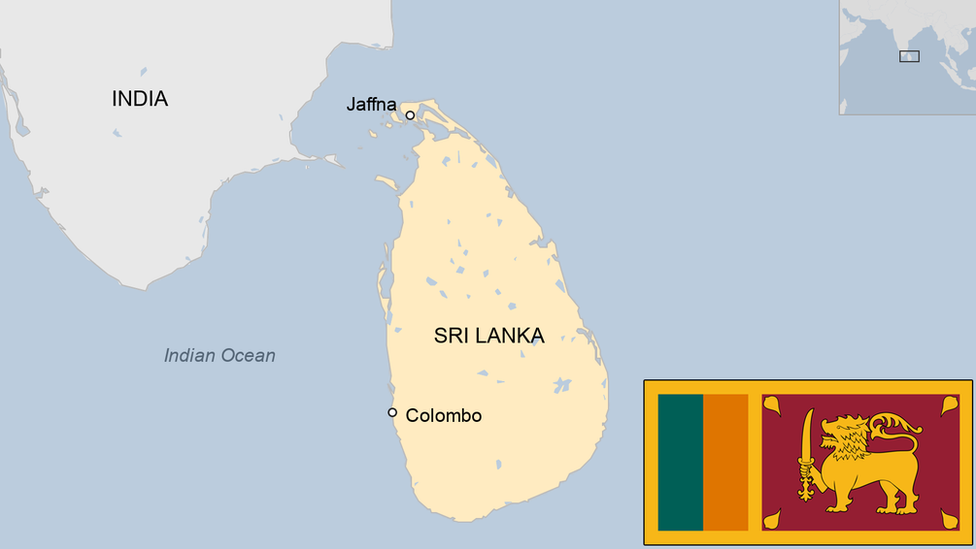Sri Lanka struggles to halt days of Buddhist riots
- Published
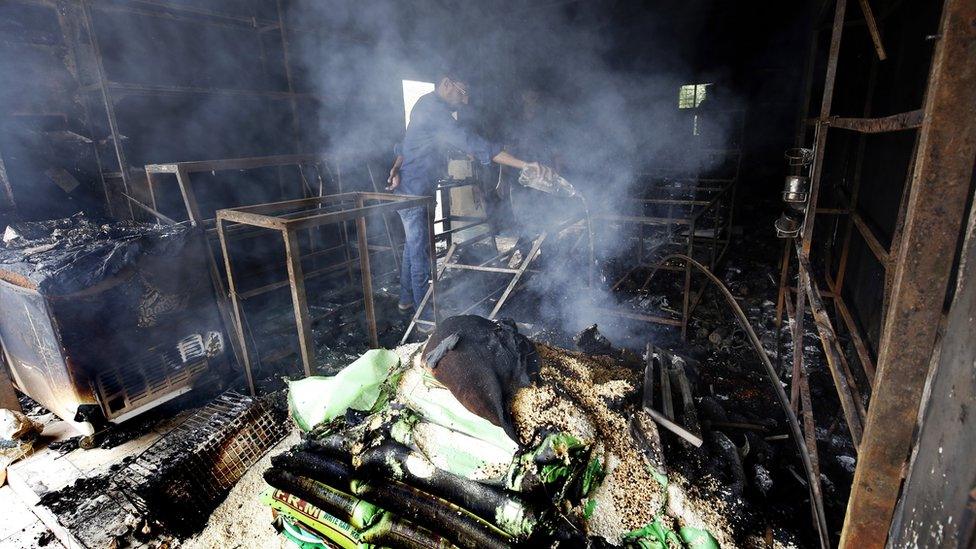
Scores of Muslim businesses are reported to have been targeted by Buddhist mobs - many set ablaze
The Sri Lankan government says more troops have been deployed to the central district of Kandy, to try to end days of violence against Muslims.
Police used tear gas to disperse Buddhist rioters who have attacked mosques and Muslim-owned businesses.
They are defying a curfew imposed after a Buddhist youth died during an altercation with a group of Muslims.
A state of emergency has been imposed and the curfew extended, and authorities are blocking social media.
The authorities had feared retaliation after a young Muslim man's body was found in a burnt-out building in Kandy on Tuesday.
Fresh clashes between mobs from the majority Sinhalese and minority Muslim communities erupted in several areas overnight, and a number of properties were set on fire.
On Wednesday, there were reports that a Sinhalese man had died when a hand grenade he was carrying went off in a Kandy district.
Police leave has been cancelled and "the army has been deployed in tens and thousands" in the scenic hilly area, said government spokesman Rajitha Senarathane.
President Maithripala Sirisena toured Kandy on Wednesday, saying he had "ordered that the full force of the law be used against troublemakers", reported AFP news agency.
Meanwhile, the influential former captain of the Sri Lankan cricket team, Kumar Sangakkara, called for the violence to stop and said there was "no place for racism or violence":
Allow X content?
This article contains content provided by X. We ask for your permission before anything is loaded, as they may be using cookies and other technologies. You may want to read X’s cookie policy, external and privacy policy, external before accepting. To view this content choose ‘accept and continue’.
Last week, the eastern town of Ampara also saw anti-Muslim violence over a dispute in a shop.
Tensions have been building in Buddhist-majority Sri Lanka since 2012, said to have been fuelled by hard-line Buddhists.
Under the state of emergency, the authorities are able to arrest and detain suspects for long periods, and deploy forces where needed.
It is the first time in seven years Sri Lanka has imposed the measure. The country was under a state of emergency for nearly three decades when the government fought Tamil rebels in the civil war that ended in 2009.
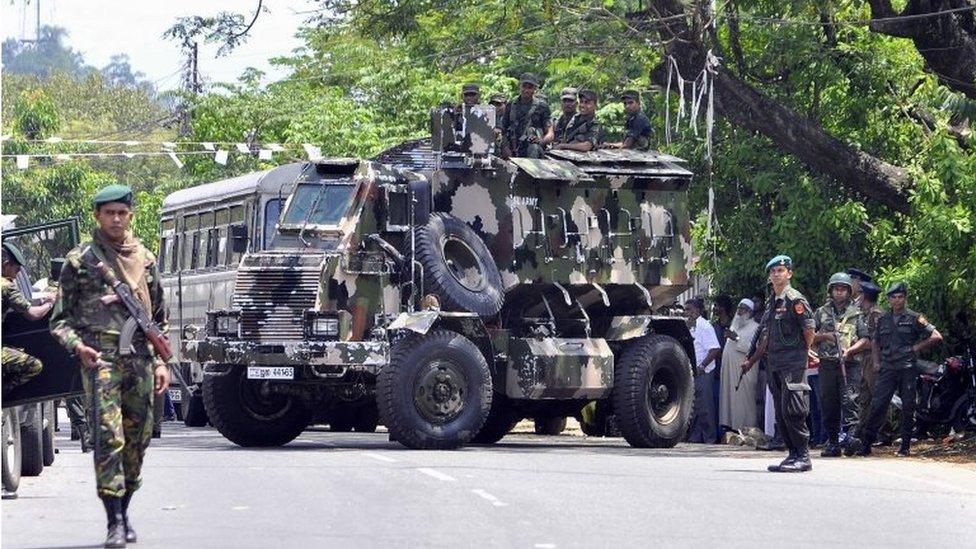
Police commandos are out in force in Kandy
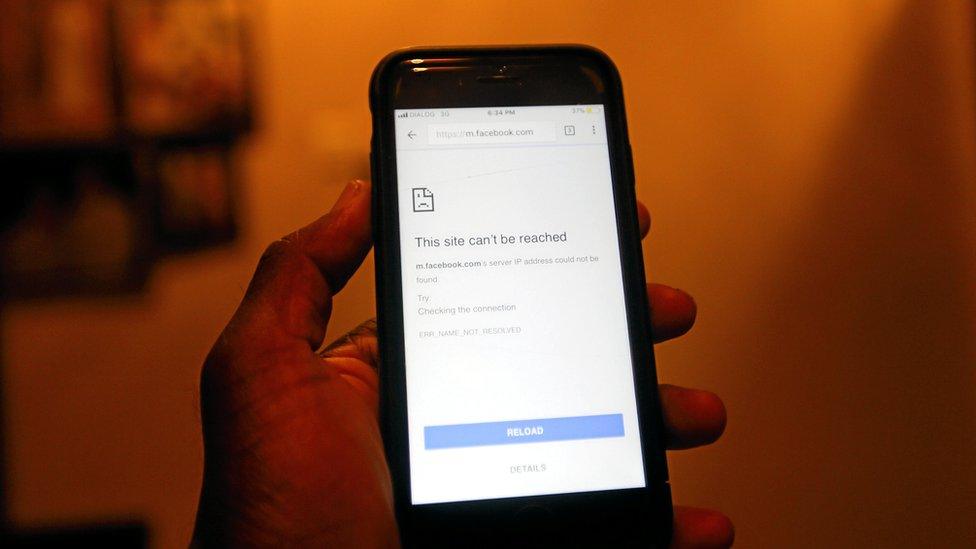
Social media sites have been blocked - and in some of the affected area, the entire internet shut down
"Access to certain social media sites and messaging platforms will be restricted with immediate effect until further notice," said a statement from Sri Lanka's largest mobile phone provider Dialog.
A senior government minister told the BBC that Facebook, WhatsApp and other social platforms were being used to carry hate speech and misinformation aimed at inciting more violence.
Schools have been closed and a curfew extended until Thursday evening.
Foreign governments have urged their citizens to stay away from large crowds and protests, and warn that there could be more unrest.
The UN has urged that immediate action be taken against perpetrators of the violence.
- Published18 November 2017
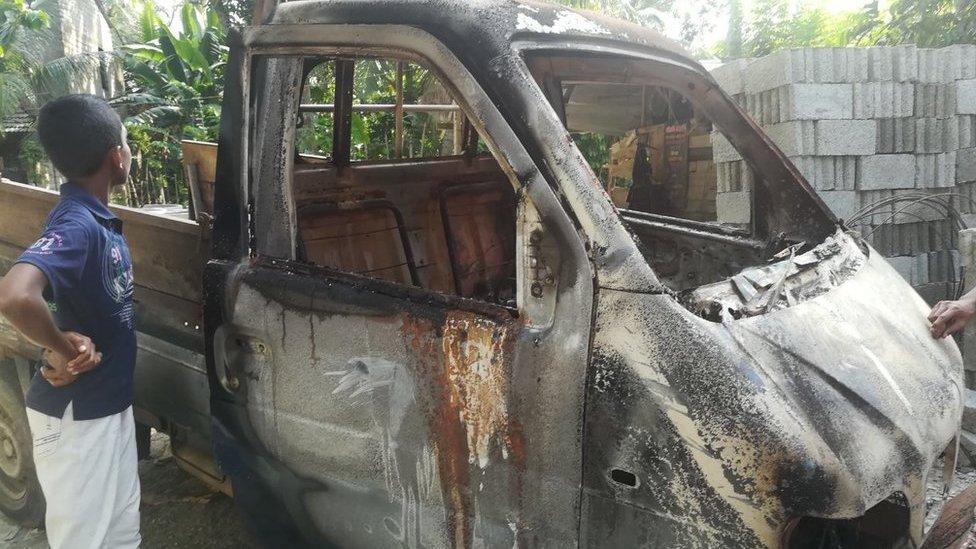
- Published18 November 2017
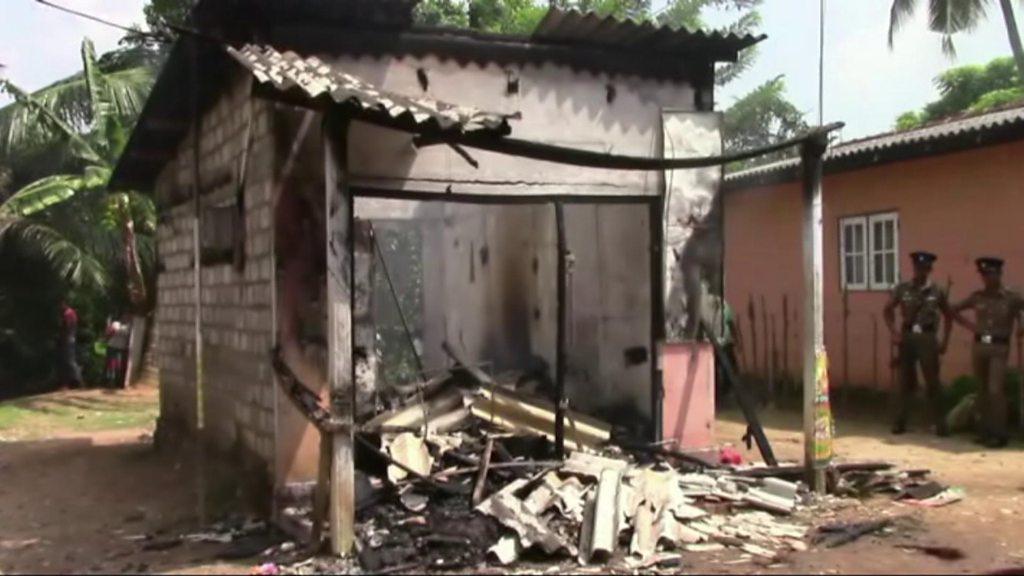
- Published17 June 2014
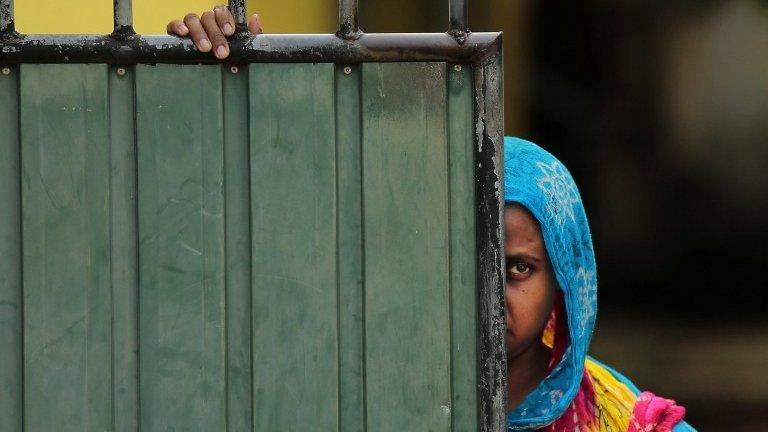
- Published25 June 2014

- Published4 October 2024
